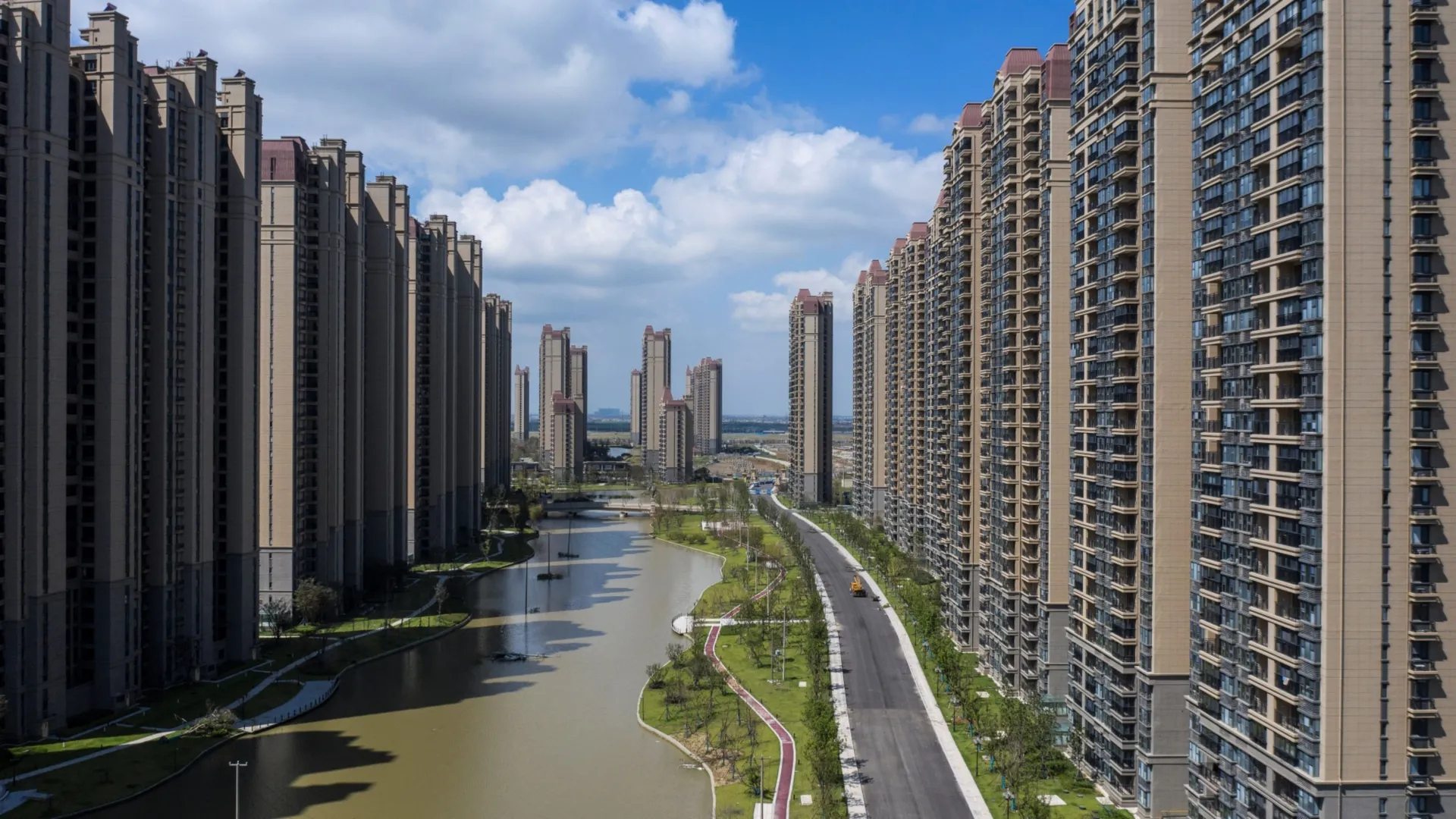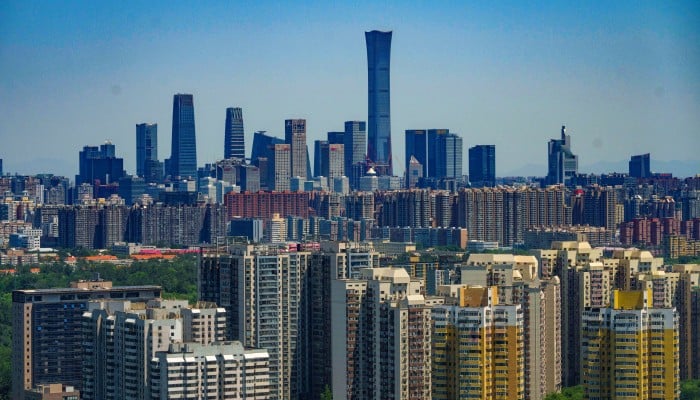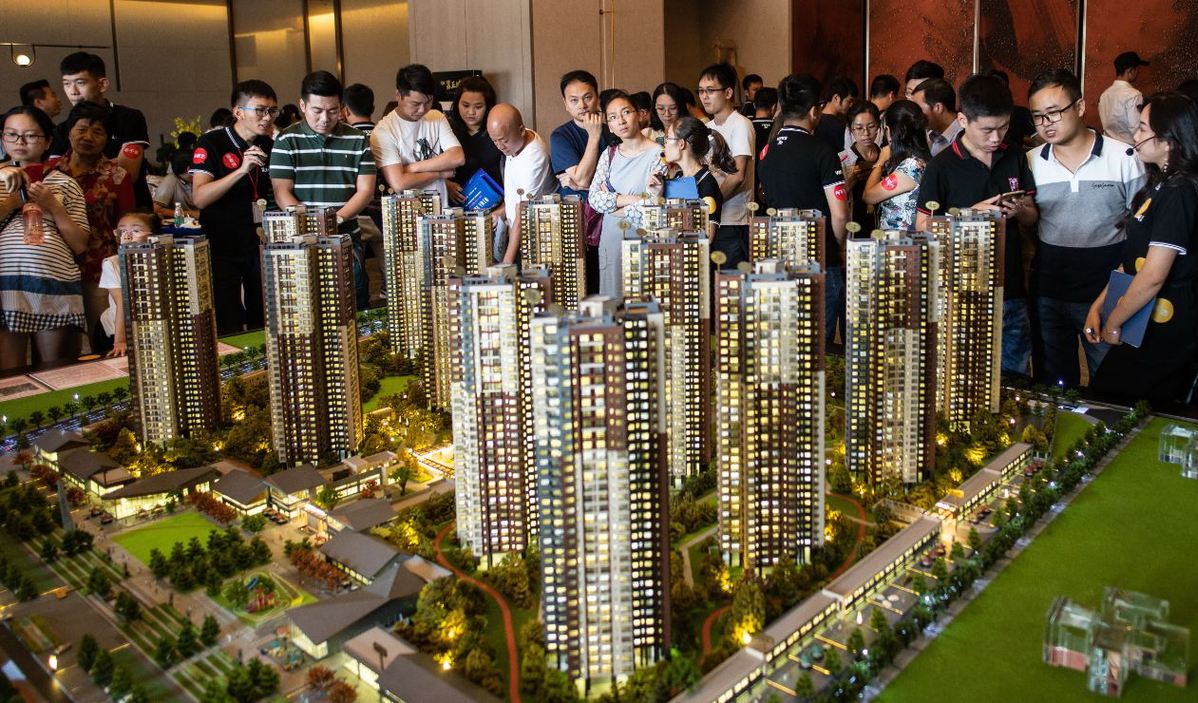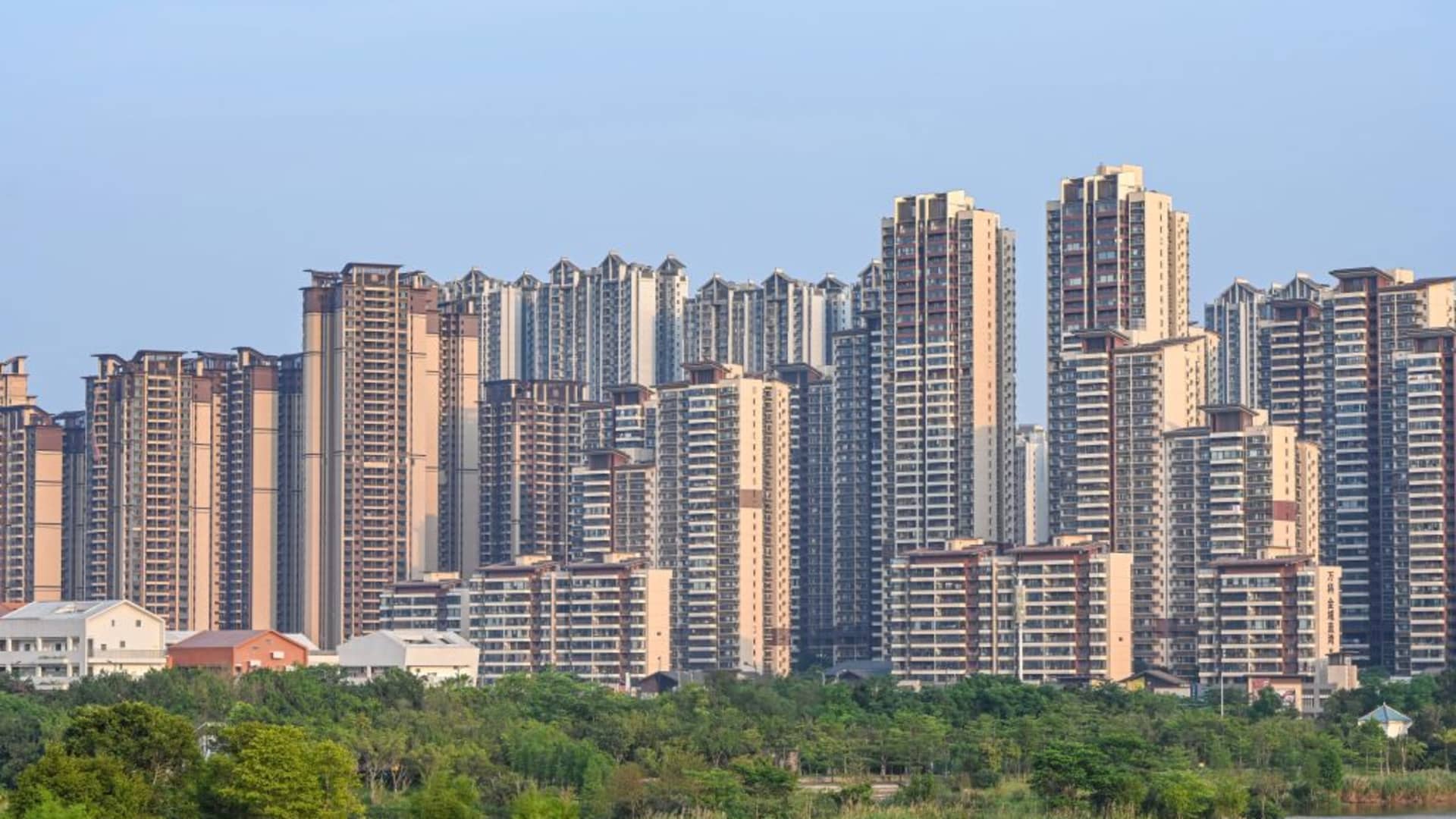China’s capital city, Beijing, has long been a symbol of economic ambition and urban transformation. Its skyline, dotted with gleaming skyscrapers and sprawling residential complexes, tells a story of rapid growth. But beneath the surface, the real estate market—a cornerstone of China’s economic miracle—has faced recurring crises that threaten to “defeat” Beijing’s aspirations for stability and prosperity. From speculative bubbles to government crackdowns, the property sector’s volatility has repeatedly challenged policymakers. This article explores whether real estate could, once again, pose a formidable challenge to Beijing’s economic control, blending history, analysis, and real-world implications for a global audience.
The Historical Context: Beijing’s Real Estate Rollercoaster
Beijing’s property market has been a wild ride for decades. In the early 2000s, urbanization and economic reforms fueled a construction boom, turning farmland into high-rise apartments almost overnight. I remember visiting Beijing in 2010, marveling at the cranes dominating the skyline, only to hear locals whisper about “ghost cities” where new buildings stood empty. This paradox—overbuilding amid soaring demand—set the stage for recurring crises.
The 2008 Boom and Bust
Post-Olympics Beijing saw a real estate frenzy. Prices skyrocketed as speculators and middle-class families poured savings into property, believing it was a sure bet. But by 2010, fears of a bubble led to government cooling measures, like higher down payments and loan restrictions. These policies curbed speculation but left developers strapped for cash, foreshadowing today’s struggles.
The Evergrande Crisis of 2021
Fast forward to 2021, and the collapse of Evergrande—a property giant with $300 billion in debt—sent shockwaves through Beijing’s economy. Homebuyers, like my friend Li who pre-paid for an unfinished apartment, were left in limbo. The crisis exposed how deeply real estate was entwined with China’s financial system, forcing Beijing to intervene with bailouts and reforms.
Why Real Estate Matters to Beijing’s Economy
Real estate isn’t just about homes in China—it’s the backbone of economic growth. Property development accounts for roughly 25% of China’s GDP, with Beijing’s market being a bellwether for national trends. When prices soar or crash, the ripple effects hit banks, local governments, and everyday citizens. Understanding this dynamic is key to grasping why Beijing fights so hard to tame the sector.
The Economic Domino Effect
A struggling real estate market doesn’t just hurt developers. Local governments rely on land sales for revenue, banks hold trillions in property loans, and households tie up 70% of their wealth in real estate. A downturn risks unemployment, financial instability, and eroded consumer confidence—challenges Beijing cannot ignore.
Social Stability at Stake
In Beijing, owning a home is more than a financial decision; it’s a cultural milestone. Young couples often need property to marry, and families see it as a safety net. When prices plummet or projects stall, public frustration grows. I’ve seen WeChat groups filled with angry homebuyers demanding refunds, a headache for a government prioritizing stability.
Beijing’s Policy Arsenal: Can It Win Again?
Beijing has never shied away from bold interventions. From loan caps to outright bans on speculative buying, the government has flexed its muscles to control the market. In 2023, posts on X noted Beijing’s move to lower down payments and extend loan terms to stimulate demand. But do these measures address the root issues, or are they just Band-Aids?
Recent Policy Moves
In late 2023, Beijing slashed down payment ratios for first- and second-home buyers and extended loan terms from 25 to 30 years. These steps aimed to boost affordability, but critics argue they risk inflating another bubble. Meanwhile, developers still grapple with liquidity issues, and consumer confidence remains shaky.
The “Three Red Lines” Policy
Introduced in 2020, the “Three Red Lines” policy set strict debt limits for developers. It was meant to curb reckless borrowing but ended up starving companies like Evergrande of cash. While it showed Beijing’s resolve, it also triggered a wave of defaults, leaving policymakers scrambling to balance control and growth.
Comparing Beijing’s Approach to Global Markets
Beijing’s heavy-handed approach contrasts with other global cities. Let’s compare its strategies to those of New York and London to understand what’s at stake.
| City | Market Driver | Government Role | Key Challenge |
|---|---|---|---|
| Beijing | State-led urbanization | Strict controls, loan restrictions | Overbuilding, developer debt |
| New York | Private investment | Limited intervention, tax incentives | Affordability, income inequality |
| London | Global investment | Moderate regulation, foreign buyer taxes | Speculative buying, housing shortages |
Beijing’s reliance on state control gives it unique leverage but also unique risks. Unlike New York’s market-driven model or London’s globalized approach, Beijing’s policies can backfire if miscalibrated, as seen in the Evergrande fallout.
Pros of Beijing’s Approach
- Stabilizing Intent: Policies aim to protect consumers and prevent systemic collapse.
- Rapid Response: Beijing can enact sweeping reforms faster than democratic systems.
- Long-Term Vision: Urban planning aligns with national goals like carbon neutrality.
Cons of Beijing’s Approach
- Market Distortion: Overregulation can stifle innovation and scare investors.
- Debt Traps: Easing credit risks fueling unsustainable growth.
- Public Backlash: Policies that fail to deliver homes erode trust in governance.
What’s Driving the Current Crisis?
Today’s real estate challenges stem from a mix of structural and cyclical issues. Oversupply in some areas coexists with unaffordable prices in Beijing’s core. Add to that a slowing economy and demographic shifts—China’s population is aging, reducing demand for new homes. My cousin in Beijing recently complained about unsold condos near his office, a sign of cooling interest.
Developer Debt Woes
Developers like Country Garden and Sunac face mounting debts, with some defaulting on bonds. This isn’t just a corporate problem—banks holding these loans risk losses, and unfinished projects leave buyers stranded. Beijing’s push for deleveraging has yet to fully resolve this mess.
Shifting Buyer Sentiment
Younger Beijingers are rethinking homeownership. With prices still high—averaging $7,000 per square meter in central areas—many prefer renting or investing elsewhere. This shift challenges the assumption that property is always a safe bet, putting pressure on developers to adapt.
Can Beijing Turn the Tide?
Beijing’s track record shows resilience, but the current crisis tests its limits. The government’s 2023 stimulus, like extended loan terms, aims to revive demand, but structural issues like oversupply and debt linger. A friend who works in Beijing’s municipal government hinted at more reforms in 2026, possibly including rental subsidies or public housing expansion.
Potential Solutions
- Affordable Housing Push: Expanding low-cost housing could ease pressure on first-time buyers.
- Debt Restructuring: Targeted bailouts for developers could stabilize the market without inflating prices.
- Urban Redevelopment: Repurposing empty buildings for commercial or community use could absorb excess inventory.
Risks of Inaction
If Beijing fails to act decisively, the fallout could be severe. A prolonged slump risks job losses in construction, reduced local government revenue, and a hit to consumer spending. Worse, it could fuel social unrest, as seen in protests over unfinished homes in 2022.
People Also Ask (PAA)
Why is Beijing’s real estate market struggling?
Beijing’s market faces oversupply, developer debt, and waning buyer confidence. Policies to curb speculation have slowed growth, while economic slowdowns and an aging population reduce demand.
How does real estate impact China’s economy?
Real estate drives about 25% of China’s GDP, influencing jobs, banking, and local government revenue. A downturn can trigger financial instability and erode consumer trust.
What measures has Beijing taken to stabilize property?
Beijing has lowered down payments, extended loan terms, and imposed debt caps on developers. These aim to balance affordability with financial discipline but have mixed results.
Can foreigners buy property in Beijing?
Foreigners face strict rules, including residency requirements and limits on property types. Check with local real estate agencies or government portals for current regulations.
Where to Get Reliable Information
For those navigating Beijing’s real estate landscape, credible sources are crucial. The Ministry of Housing and Urban-Rural Development (www.mohurd.gov.cn) offers policy updates, while platforms like Lianjia (www.lianjia.com) provide market data. For global perspectives, Bloomberg and Reuters cover China’s property trends with depth.
Best Tools for Real Estate Analysis
- Lianjia App: Tracks Beijing property prices and trends in real-time.
- Anjuke: Offers listings and market insights for buyers and renters.
- China Real Estate Index System (CREIS): Provides detailed data for investors.
- Bloomberg Terminal: Ideal for global investors analyzing China’s market.
FAQ: Beijing’s Real Estate Challenges
Q: Why do developers in Beijing struggle with debt?
A: Developers overborrowed during the property boom, relying on pre-sales and loans. Tight regulations like the “Three Red Lines” have since limited their cash flow, leading to defaults.
Q: Are Beijing’s property prices likely to crash?
A: A sharp crash is unlikely due to government intervention, but prices may stagnate as oversupply and low demand persist. Central areas remain expensive, averaging $7,000 per square meter.
Q: How can first-time buyers afford homes in Beijing?
A: Buyers can explore government-subsidized housing, lower down payment schemes, or outer districts with cheaper prices. Consulting local agencies like Lianjia helps identify options.
Q: What role does the government play in Beijing’s market?
A: The government regulates prices, loans, and developer debt to prevent bubbles and ensure stability. Recent moves include easing loan terms to boost demand.
Q: Is investing in Beijing real estate still safe?
A: Risks are high due to debt issues and market uncertainty, but long-term potential remains in stable areas. Diversifying investments and consulting experts is wise.
The Road Ahead: Will Real Estate Defeat Beijing?
Beijing’s real estate saga is far from over. The city’s ability to balance growth, affordability, and stability will determine whether the property market becomes a triumph or a persistent foe. As I reflect on my visits to Beijing, from the chaotic construction sites of the 2000s to today’s uncertain market, one thing is clear: the stakes are high. If Beijing can innovate—through smarter policies, affordable housing, or creative urban planning—it may yet tame the real estate beast. But if missteps continue, the market could indeed “defeat” the capital’s ambitions, proving that even the mightiest cities can stumble.
For readers eager to dive deeper, explore resources like the China Real Estate Association (www.crea.org.cn) or global reports from CBRE (www.cbre.com). Whether you’re a buyer, investor, or curious observer, Beijing’s real estate story is a lesson in resilience, risk, and the power of policy.



